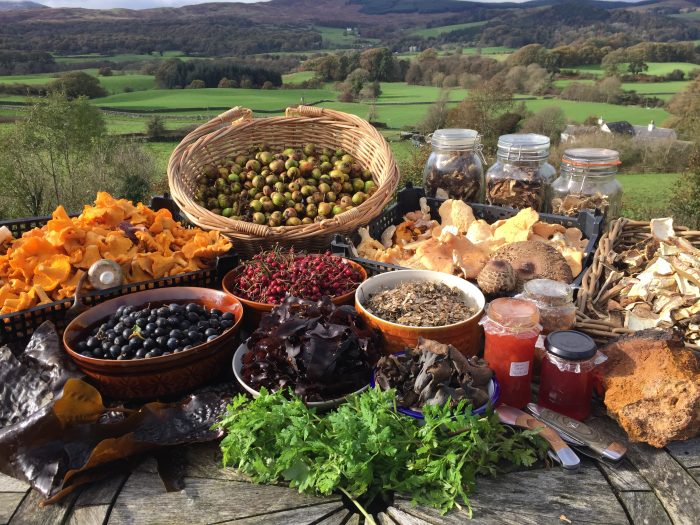Fermented foods have been a staple in human diets for thousands of years, but only recently has there been a resurgence in their popularity. From sauerkraut and kimchi to kombucha and kefir, these foods offer a complex combination of flavors, textures, and aromas that have intrigued food enthusiasts and health-conscious individuals alike. Fermentation, a natural process that uses microorganisms to transform food, not only enhances flavors but also preserves food and boosts its nutritional value. While we often take these foods for granted in our modern diets, fermenting food was once an essential technique for preserving produce before refrigeration, especially during the off-season. In this article, we’ll explore the fascinating world of fermented foods, uncovering their health benefits, and why they deserve a place in your diet.
The Art and Science of Fermentation
Fermentation is more than just a process; it’s an ancient art that has been perfected over centuries. It involves the breakdown of sugars in food by bacteria, yeast, or fungi, transforming them into alcohol, gases, or acids. This process not only preserves the food but also creates a range of new flavors and textures, making fermented foods exciting to experience.
There are two primary types of fermentation: lactic acid fermentation and alcoholic fermentation. Lactic acid fermentation, which is responsible for the tangy flavor of foods like sauerkraut and kimchi, occurs when beneficial bacteria, such as lactobacillus, convert sugars into lactic acid. This type of fermentation is commonly used for vegetables, dairy, and some grains. On the other hand, alcoholic fermentation involves yeast and is used to produce alcoholic beverages like beer and wine, as well as foods like sourdough bread.
Why Fermented Foods Are a Health Revolution
Fermented foods aren’t just a culinary delight; they offer significant health benefits that go beyond their taste. The fermentation process creates a wealth of probiotics, which are beneficial bacteria that play an essential role in gut health. Here are some key health benefits of incorporating fermented foods into your diet:
- Gut Health: The probiotics created during fermentation are vital for maintaining a healthy gut microbiome. A balanced microbiome promotes optimal digestion, strengthens the immune system, and even influences mental health. Fermented foods like kimchi, miso, and yogurt contain live bacteria that help balance the gut flora, ensuring that the beneficial bacteria outnumber harmful ones. Research suggests that consuming fermented foods regularly can improve digestion, alleviate bloating, and reduce symptoms of irritable bowel syndrome (IBS).
- Boosting Immunity: A large portion of our immune system resides in the gut, and a healthy microbiome is crucial for immune function. Fermented foods are rich in prebiotics—fiber and other substances that feed the good bacteria in our gut—supporting the immune system and helping to combat infections and inflammation. Regularly eating fermented foods can therefore help strengthen your body’s defenses against pathogens and illnesses.
- Improved Nutrient Absorption: Fermentation enhances the bioavailability of nutrients in food. For example, fermented dairy products like kefir and yogurt are easier to digest than milk, as the fermentation process breaks down lactose, making them suitable for individuals who are lactose intolerant. Additionally, fermentation can increase the absorption of minerals such as calcium, iron, and magnesium, which are often bound in foods in forms that are difficult for our bodies to absorb.
- Mental Health Benefits: Did you know that your gut health can impact your mood and mental health? It’s true. Emerging research suggests a strong connection between the gut and the brain, known as the “gut-brain axis.” Since fermented foods are rich in probiotics, they may help reduce symptoms of anxiety, depression, and stress. Probiotics can influence neurotransmitters like serotonin, which play a key role in mood regulation, potentially offering a natural way to enhance mental well-being.
- Enhanced Digestive Health: Fermented foods also contain enzymes that help break down food and support digestive processes. For instance, the enzymes in fermented foods can help break down proteins and starches, making it easier for your body to digest and absorb nutrients. This can reduce the burden on your digestive system and may help alleviate issues like acid reflux, indigestion, and constipation.
Exploring Fermented Foods from Around the World
Fermentation isn’t just a modern trend—it’s an ancient culinary tradition embraced by cultures across the globe. Here’s a look at some iconic fermented foods from various regions:
- Kimchi (Korea): Kimchi is one of Korea’s most beloved dishes, made from fermented vegetables, primarily napa cabbage and radishes, seasoned with chili peppers, garlic, ginger, and fish sauce. This spicy, tangy dish is not only a great side dish but is also a source of probiotics, making it an excellent choice for gut health.
- Miso (Japan): Miso is a fermented paste made from soybeans, rice, or barley. It’s a key ingredient in Japanese cuisine, often used to make soups and marinades. Rich in umami flavor, miso is packed with probiotics and antioxidants that support digestion and immune health.
- Sauerkraut (Germany): Sauerkraut, or “sour cabbage,” is a classic example of lactic acid fermentation. It’s made by fermenting finely shredded cabbage with salt, resulting in a tangy, crunchy condiment that’s high in probiotics. Sauerkraut is commonly served with meats and sausages in German cuisine but can also be enjoyed on its own as a tangy snack.
- Kefir (Caucasus region): Kefir is a fermented dairy beverage that’s similar to yogurt but thinner and more effervescent. Made by fermenting milk with kefir grains, it’s rich in probiotics, vitamins, and minerals. It’s often used as a drink or added to smoothies, making it an easy way to incorporate probiotics into your diet.
- Tempeh (Indonesia): Tempeh is a fermented soybean product from Indonesia that has a firm texture and nutty flavor. It’s often used as a meat substitute in vegetarian and vegan dishes. Tempeh is an excellent source of plant-based protein, fiber, and probiotics, making it a nutritious addition to your meals.
- Natto (Japan): Natto is a traditional Japanese dish made from fermented soybeans, characterized by its strong smell, sticky texture, and savory flavor. Although it’s an acquired taste for some, natto is loaded with beneficial bacteria and enzymes, including nattokinase, which has been shown to support heart health.
- Kombucha (China): Kombucha is a fermented tea beverage that’s become incredibly popular worldwide. Made by fermenting sweet tea with a symbiotic culture of bacteria and yeast (SCOBY), kombucha has a tangy, slightly sweet flavor and is packed with probiotics. It’s also rich in antioxidants, which may help reduce inflammation and support overall health.
How to Incorporate Fermented Foods into Your Diet
Incorporating fermented foods into your diet can be easy and enjoyable. Here are a few simple ideas:
- Add kimchi to sandwiches, wraps, or tacos for a spicy kick.
- Mix miso paste into soups, stews, or dressings for an umami flavor boost.
- Top your morning toast with sauerkraut and avocado for a tangy breakfast.
- Make a kefir smoothie by blending kefir with your favorite fruits.
- Include tempeh in stir-fries, salads, or sandwiches as a plant-based protein source.
- Sip on kombucha as a refreshing and gut-friendly beverage throughout the day.
Conclusion
Fermented foods offer more than just a unique taste experience—they are powerful allies in promoting health and sustainability. With their rich probiotic content, they support digestive health, boost immunity, and even improve mental well-being. By adding more fermented foods to your diet, you not only enhance your meals with vibrant flavors but also nourish your body with essential nutrients. Whether you’re a food enthusiast looking to explore new flavors or someone seeking to boost your gut health, fermented foods offer a world of culinary and health benefits that are waiting to be discovered. So why not explore the world of fermentation and unlock the incredible potential of these age-old foods?






